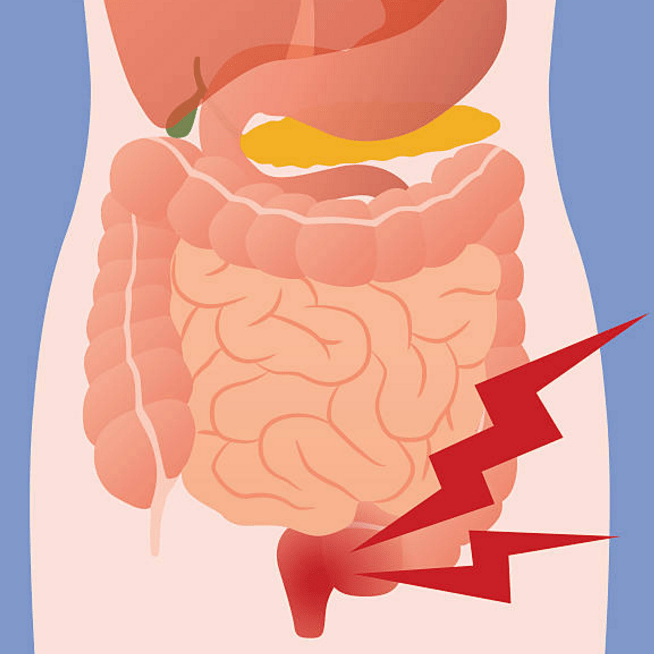A thorough evaluation and proper diagnosis by the doctor is important any time there is bleeding from the rectum or blood in the stool as bleeding may be a symptom of serious conditions and gastrointestinal tract diseases, including colorectal cancer.
Causes
In the lower digestive tract, the large intestine and rectum are frequent sites of bleeding. Some possible causes of rectal bleeding from the lower gastrointestinal tract can include:
- Haemorrhoids: Haemorrhoids are the most common cause of visible blood especially, blood that appears bright red. Haemorrhoids are enlarged veins in the anal area that can rupture and produce bright red blood, which can show up in the toilet or on toilet paper. https://centrefordigestivediseases.com/haemorrhoids/
- Polyps: Benign growths or polyps of the colon are very common and are thought to be forerunners of cancer. These growths can cause either bright red blood or occult bleeding. https://centrefordigestivediseases.com/colonic-polyp/
- Colon Cancer: Colon cancer is the most frequently diagnosed cancer in Australia and often causes occult bleeding at some point in time, which is not necessarily visible. https://centrefordigestivediseases.com/for-patients/tests/colon-cancer-screening/
- Infection: Different intestinal infections cause inflammation and bloody diarrhoea, for example Clostridium difficile infection. https://centrefordigestivediseases.com/infection-with-clostridium-difficile/
- Inflammatory Bowel Diseases (IBD) – Ulcerative Colitis (UC) and Crohn’s Disease (CD): Ulcerative colitis induces inflammation and extensive surface bleeding from tiny ulcerations and Crohn’s disease of the large intestine leads to pronounced bleeding . https://centrefordigestivediseases.com/crohns-disease-2/
- Diverticular Disease: Diverticular disease caused by diverticular outpouching of the colon wall can result in massive bleeding . https://centrefordigestivediseases.com/diverticulosis-diverticulitis/
- Anal Fissures: A fissure is a split in the anal sphincter which may bleed and hurt as if a razor blade is being passed through during defaecation. It is treated firstly by softening the stool through high fibre diets, laxatives and stool softeners. When the sphincters are relaxed, healing can happen. In the case of chronic fissures injection of a muscle relaxant is done under sedation. Surgery is preventable and generally avoided as many years later, it may lead to incontinence.
- Age Related Abnormalities: Finally, age-related abnormalities may develop in the blood vessels of the large intestine, which may end in recurrent rectal bleeding.
Investigations and Diagnosis
When diagnosing rectal bleeding, the site of the bleeding must be located if possible. A complete history and physical examination are essential. Symptoms such as changes in bowel habits, stool colour (black or red), stool consistency and the presence of abdominal swelling, pain or tenderness may aid the doctor in determining which area of the gastrointestinal tract is affected.
Some supplements, medications and foods can give the stool the same appearance as bleeding from the digestive tract, and therefore it is essential to test the stool for the presence of blood.
Blood investigations including a full blood count may be necessary and will give indication of whether anaemic is present, the extent of the bleeding and how chronic it has been.
Colonoscopy allows the gastroenterologist to view the entire colon and rectum, detect the source of the bleeding, collect small samples of tissue (biopsies), photograph for documentation and future reference and at times, if possible, treat the cause of bleeding as well.
Treatment
Colonoscopy is the primary diagnostic and therapeutic procedure for most causes of gastrointestinal bleeding. For example, during a colonoscopy, polyps can be removed, haemorrhoids can be treated (banding or IRC) and endoscopic injection or cauterization can be used to treat bleeding sites throughout the lower intestinal tract.
Although endoscopic techniques effectively treat most cases of rectal bleeding, there are rare cases where treatment may not be sufficient. In these cases surgery may be required to control active, severe or recurrent bleeding.

